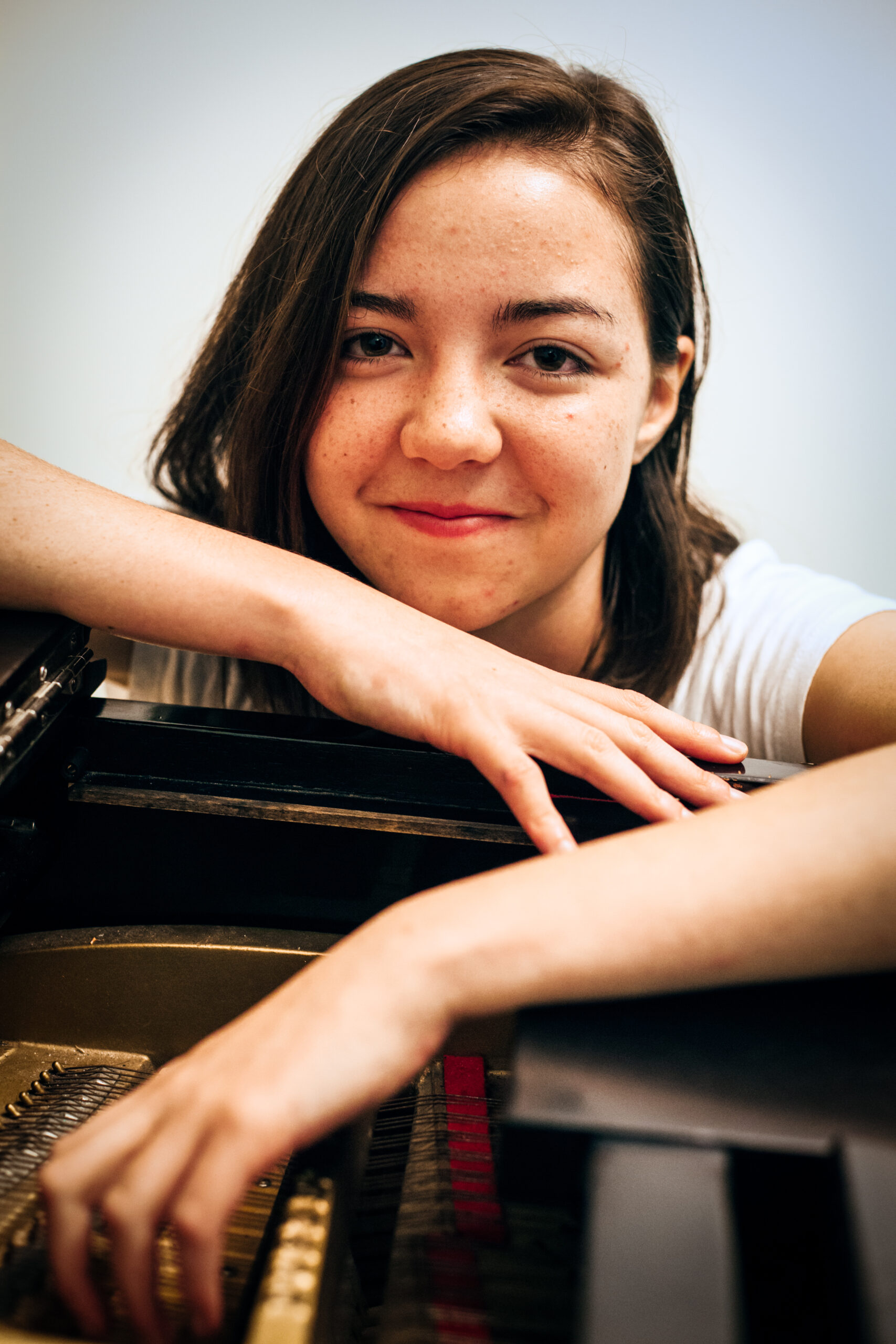Portrait of an Artist: two women on jazz at Bowdoin
September 14, 2018
 PJ Seelert
PJ SeelertAriana Smith ’21 and Flora Hamilton ’21, members of the Bowdoin jazz program, are creative partners in writing and performing original music on campus. Smith is a singer-songwriter, and Hamilton is a jazz pianist.
The following interview has been edited for length and clarity.
The Bowdoin Orient: What brought you to jazz at Bowdoin?
Flora Hamilton: I started jazz when I was a junior in high school. The jazz program itself teaches me music fundamentals, but what I really get out of it is learning how to work with other musicians.
Ariana Smith: I’m classically trained; I didn’t do anything with jazz before coming to Bowdoin. I write music, and Flora is so incredibly talented that she can bring the things in my mind to life and spice them up. Make them actual jazz. We’re a team—I can’t do it without her.
Q: What has been a favorite collaboration or performances?
AS: Last year, while performing in the Pub, there was a moment at the end when Flora and I just happened to do the same thing at the same time. Not planned at all, but it worked. I’ll never forget how great that was—how much of a privilege and a blessing it was to express a song I had written—to perform with such talented musicians.
Q: From where do you draw inspiration?
AS: So fun fact, I can’t read music. I’ll write a song and lyrics, bring it to Flora, and we’ll jam together. The song “November Solitude,” I penned it as a cry out to God really. ‘Are you going to leave me here, please stay, because I need you, I can’t do this alone.’ I draw inspiration from my lived experiences and those of others.
FH: I was a classically trained pianist, so breaking out of the classical shell is still happening for me. And I’ve really grown in that sense, using my ear and intuition.
Q: Can you share any upcoming projects? Hopes and ambitions for the future?
AS: Over the summer, I worked on a collection called “Seasons,” one song for every season. We’re working to bring those to life.
FH: I would love to start writing. That’s very scary, but that’s my personal project. It would also be great to see an all-girls band.
Q: What does it mean for you to champion women in the arts, especially jazz?
FH: I’d say that women working together is something new to me. I’ve really only worked with men in jazz ever since I started.
AS: There’s power in women working with women, in Flora and I being like, ‘Hey guys, want to play with us?’ Women have voices and things they want to express, and I think that jazz is so ethereal that it’s a great medium to express those feelings.
Q: Thoughts on how jazz has shaped your Bowdoin experience?
AS: There is so much talent—the caliber is actually mind-boggling. And it’s a way for me to set my goals high, but also, I get so much genuine joy watching talented musicians do their thing. It just warms my heart and life to see Flora go off on a run.
A lot of times, people view women in the same spaces as competitors, but for me, as a woman, I’m not competing against any other women. I’m me. That’s what I bring to the table. And that’s something that we stand for.
FH: Ariana provides space for me to choose. People would choose my songs for me growing up, since I accompany most of the time. Now, I’m trying to understand what I want to do musically.
Q: How has jazz has been formative in your life?
FH: Having a musical voice runs parallel to having a voice in any environment. Before I did anything with jazz, I was afraid to speak in class. But 10 seconds of soloing is—in a way—equivalent to speaking up for 10 seconds in a room full of strangers.
AS: Jazz has definitely been a channel for growth. It allows me to bring my individuality to the table, outside of the classroom and outside of my friends, and really just be myself; Flora is being herself, and we’re ourselves together, and we work.
Q: Any closing thoughts?
AS: Women are freaking awesome!
FH: And we have a lot more to learn and a lot more to say.


Comments
Before submitting a comment, please review our comment policy. Some key points from the policy: